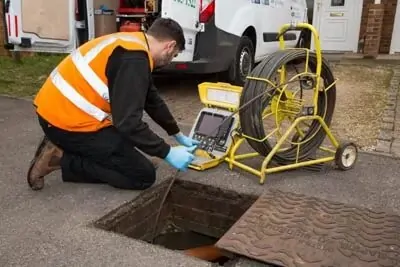What Is Indemnity Insurance and When Might You Need It? [2025 UK Buyer’s Guide]
Buying a home in the UK? Discover what indemnity insurance is, when it’s needed, typical costs, and how it protects buyers and lenders from legal risks in property transactions.


Why Indemnity Insurance Matters in Property Transactions
When buying or selling a home in the UK legal issues sometimes arise that can’t easily be resolved before completion. Instead of delaying or collapsing the sale solicitors often recommend indemnity insurance .
It’s a one-off insurance policy that protects you (and your mortgage lender) against financial loss if a legal defect in the property later causes problems.
But what exactly does indemnity insurance cover? When is it needed? And should first-time buyers worry about it? Let’s break it down.
What Is Indemnity Insurance?
Indemnity insurance is a specialist one-off insurance policy designed to cover specific legal risks in property transactions.
Purpose: Protects against potential costs or losses if an issue arises from a defect in the property’s legal title or history.
Who it protects: Usually the buyer and their lender not the seller.
How it works: Instead of fixing the underlying problem (which could take months or be impossible) the policy provides financial protection if the issue leads to claims enforcement or costs later.
When Might You Need Indemnity Insurance?
There are many situations where indemnity insurance is used in UK property transactions. Common examples include:
1. Lack of Building Regulations or Planning Permission
If past works (like an extension or loft conversion) were carried out without approval indemnity insurance covers the risk of local authority enforcement.
2. Missing Deeds or Documents
If key paperwork such as title deeds rights of way agreements or old conveyancing documents are missing insurance can cover the legal risk.
3. Restrictive Covenants
If the property has historic restrictions (e.g. banning extensions or certain uses) indemnity insurance covers potential enforcement by the covenant holder.
4. Absence of Easements
If your property relies on access over neighbouring land (for pipes drains or cables) but no legal easement exists insurance provides protection.
5. Chancel Repair Liability
A historic obligation for some properties to contribute to church repairs. Indemnity insurance protects against unexpected claims.
6. Defective Title
If the legal ownership isn’t perfectly clear indemnity insurance ensures you and your lender are financially covered.
7. Search Indemnity
If searches (like local authority or drainage searches) aren’t carried out due to time pressure insurance can cover risks normally revealed by them.
What Indemnity Insurance Does Not Cover
The cost of repairing or fixing the defect itself.
Issues you cause after purchase (e.g. knowingly breaching covenants).
Risks already disclosed to authorities (you mustn’t contact the council before taking insurance).
How Much Does Indemnity Insurance Cost?
Typical range: £50 – £500
Factors affecting cost: Type of defect property value and lender requirements.
Payment: One-off premium usually paid at completion. No annual renewals.
Compared to legal costs or delays in resolving defects indemnity insurance is often seen as a cost-effective solution.
Who Arranges and Pays for It?
Arranged by: Your solicitor or conveyancer.
Paid by: Often the seller especially if the defect is on their side but it can be negotiated.
Is Indemnity Insurance a Red Flag?
Not necessarily. It’s common in UK transactions and often just a practical way to move things along.
However:
Multiple indemnity policies may suggest unresolved issues.
Always ask your solicitor to explain what the policy covers and its implications.
Indemnity Insurance vs. Home Insurance
Indemnity Insurance: Covers legal defects in ownership or property history.
Home Insurance: Covers physical risks like fire flood or theft.
They are entirely separate and not interchangeable.
Final Thoughts: Do You Really Need It?
If your solicitor recommends indemnity insurance it’s usually the quickest safest way to proceed with your purchase.
For first-time buyers it offers reassurance without holding up the transaction.
For sellers it’s often a small price to pay to keep the sale moving.
In 2025’s competitive property market indemnity insurance has become a practical and widely accepted solution to otherwise deal-breaking legal issues.
Editorial Standards & Expertise

WiseNest Editorial Team
Our expert editorial team consists of seasoned technology professionals, business strategists, and digital transformation specialists with over 15 years of combined experience in helping businesses navigate the digital landscape.
This content is optimized to answer these questions comprehensively.
What is indemnity insurance in property transactions?
It’s a one-off insurance policy that protects buyers and lenders from financial loss if legal defects in the property later cause problems.
How much does indemnity insurance cost?
Usually between £50 and £500, depending on the issue and property value.
Who pays for indemnity insurance?
It’s often paid for by the seller but can be negotiated between buyer and seller.
What does indemnity insurance cover?
It covers risks such as missing permissions, restrictive covenants, absent easements, or defective title.
What doesn’t it cover?
It won’t pay for repairing defects, issues caused by you after purchase, or problems already reported to the council.
Do I need indemnity insurance as a first-time buyer?
If your solicitor advises it, yes—it’s often the fastest and most cost-effective way to protect yourself and your lender.
Join 10,000+ Smart
First-Time Buyers
Get expert homebuying guidance, AI-powered document analysis, and step-by-step support for your first property purchase.



Growing community
Already have an account? Sign in here
Related Articles
Continue exploring our insights and tips
![Flood Zones, Noise, and Crime: What Area Reports Can Reveal to UK Homebuyers [2025 Guide]](https://a.storyblok.com/f/335762/1666x850/c67f7cec43/map-from-check-flooding.png)
Flood Zones, Noise, and Crime: What Area Reports Can Reveal to UK Homebuyers [2025 Guide]
Buying a home? Learn how area reports reveal risks like flood zones, noise pollution, and crime rates. This 2025 UK guide explains why they matter and how to use them before making an offer.
![What Surveyors Don’t Check: Common Misunderstandings Every UK Homebuyer Should Know [2025 Guide]](https://a.storyblok.com/f/335762/352x240/c7bfdabdfb/survey-female-352x240-jpg.webp)
What Surveyors Don’t Check: Common Misunderstandings Every UK Homebuyer Should Know [2025 Guide]
Thinking of getting a house survey? Learn what surveyors don’t check, the most common misunderstandings, and what extra inspections UK homebuyers may need in 2025.

Should You Get a Drainage Survey When Buying a Home?
Thinking of buying a house? Learn why a drainage survey can save UK buyers thousands in repairs. Discover costs, benefits, red flags, and whether it’s worth it in 2025.